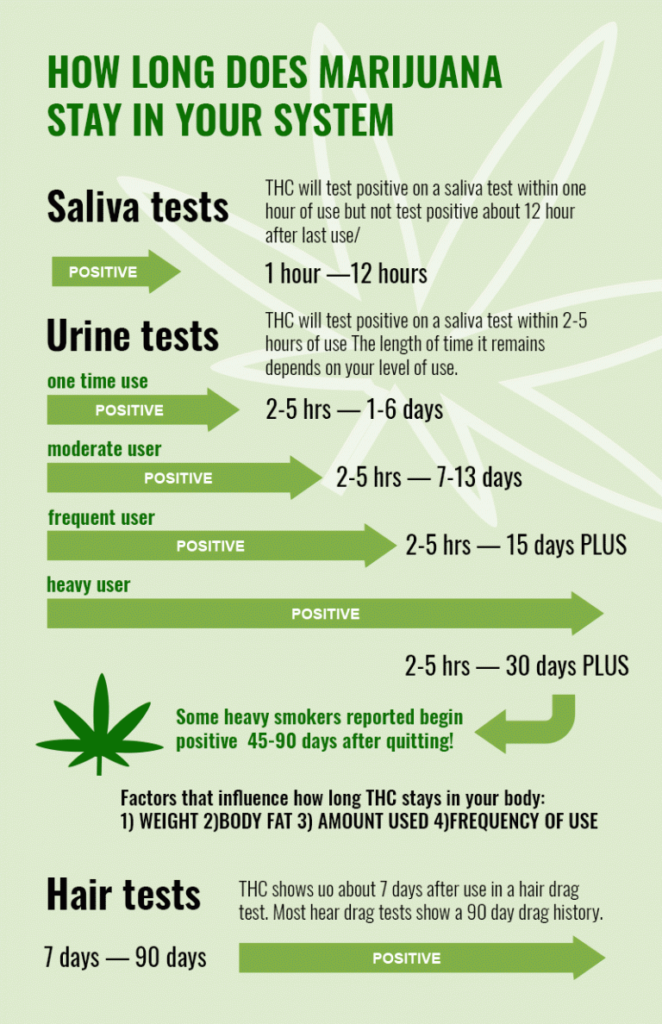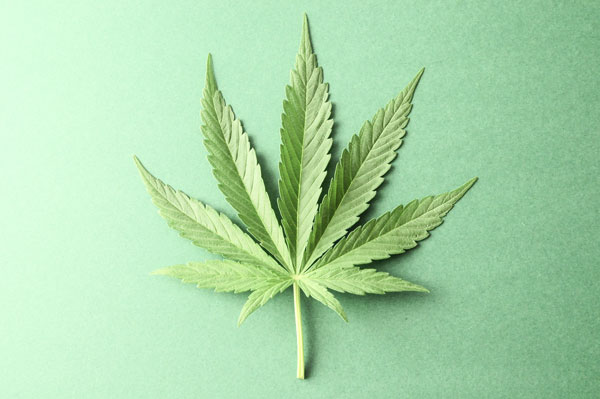The amount of time THC remains in your system depends on different factors. To start, everyone’s body is different, and the way each person’s body processes THC may be different than the next. Marijuana tends to remain detectable for longer periods than most other drugs. Things such as a persons metabolism, body fat percentage, how often they smoke, all factor into how long THC stays within an individuals body. Metabolism plays a significant role in how long THC is detected in the body. When you consume THC, it is broken down by the liver into metabolites, primarily THC-COOH (11-nor-9-carboxy-Δ9-tetrahydrocannabinol). The rate at which your body metabolizes THC-COOH and eliminates it from your system is influenced by your individual metabolism. Metabolism refers to the chemical processes in your body that convert food and substances into energy and byproducts. Factors such as age, genetics, body composition, and overall health can influence your metabolism. A faster metabolism generally leads to quicker elimination of THC-COOH. Individuals with a higher metabolic rate may process and eliminate THC-COOH more rapidly than those with a slower metabolism.
Marijuana tends to remain detectable for longer periods than most other drugs. The body naturally detoxes THC and drug residues in the body with time. However, it’s important to note that even with a faster metabolism, the elimination of THC-COOH takes time. While metabolism can play a role in the speed of THC elimination, it is not a foolproof method for quickly removing THC from the body. Time remains the most significant factor in eliminating THC and its metabolites from your system.
THC and its metabolites can be detected in urine drug tests. Urine tests are the most common method used to detect recent marijuana use. They primarily detect the presence of THC-COOH in urine rather than THC itself. The length of time THC-COOH remains detectable in urine depends on several factors, such as frequency and amount of marijuana use, metabolism, and individual characteristics. If you are receiving a Urinalysis detection test, a one time user can expect to test positive for about 3 days, a frequent user may have THC-COOH detected 10-15 days after, and for a heavy user, 30+ days after. It’s important to note that the detection window for THC-COOH in urine can vary from person to person, and these timeframes are approximate estimates. Additionally, factors such as hydration, exercise, and metabolism can affect the elimination of THC-COOH from the body.

There are other tests that are used for testing for THC such as blood, saliva, and hair follicle tests. THC-COOH can be detected in blood for about 1 to 2 days after use, while in saliva, it can be detected for up to 72 hours. Hair follicle tests have the longest detection window. These tests can detect THC for up to 90 days or even longer in some cases. This all depends on hair growth. It’s important to note that these are approximate time frames and can vary from person to person. Factors such as hydration, exercise, and metabolism can also influence the elimination of THC from the body. If you are seeking to eliminate THC from your system, be sure to drink plenty of water, exercise regularly, and avoid using any products with THC in them.













